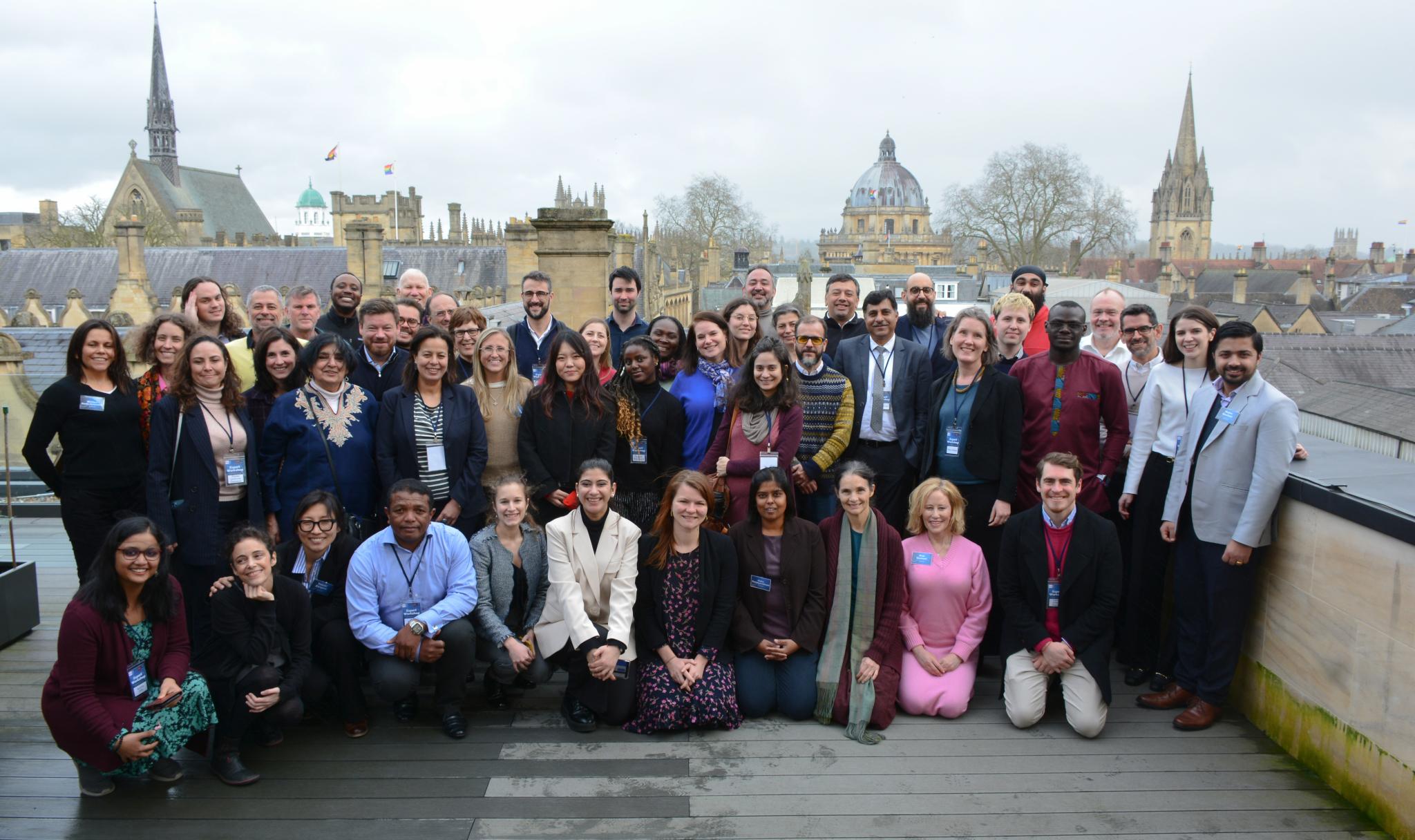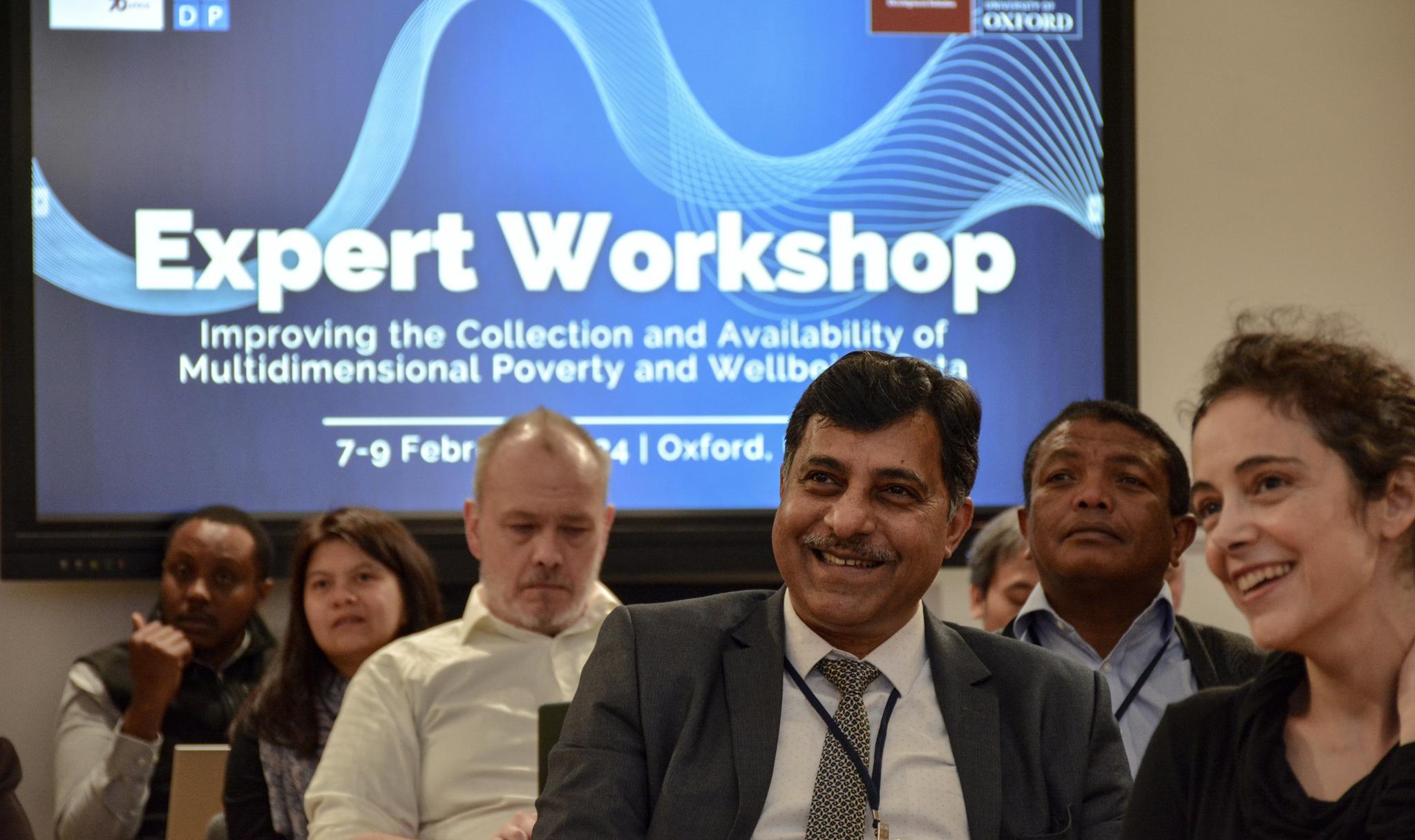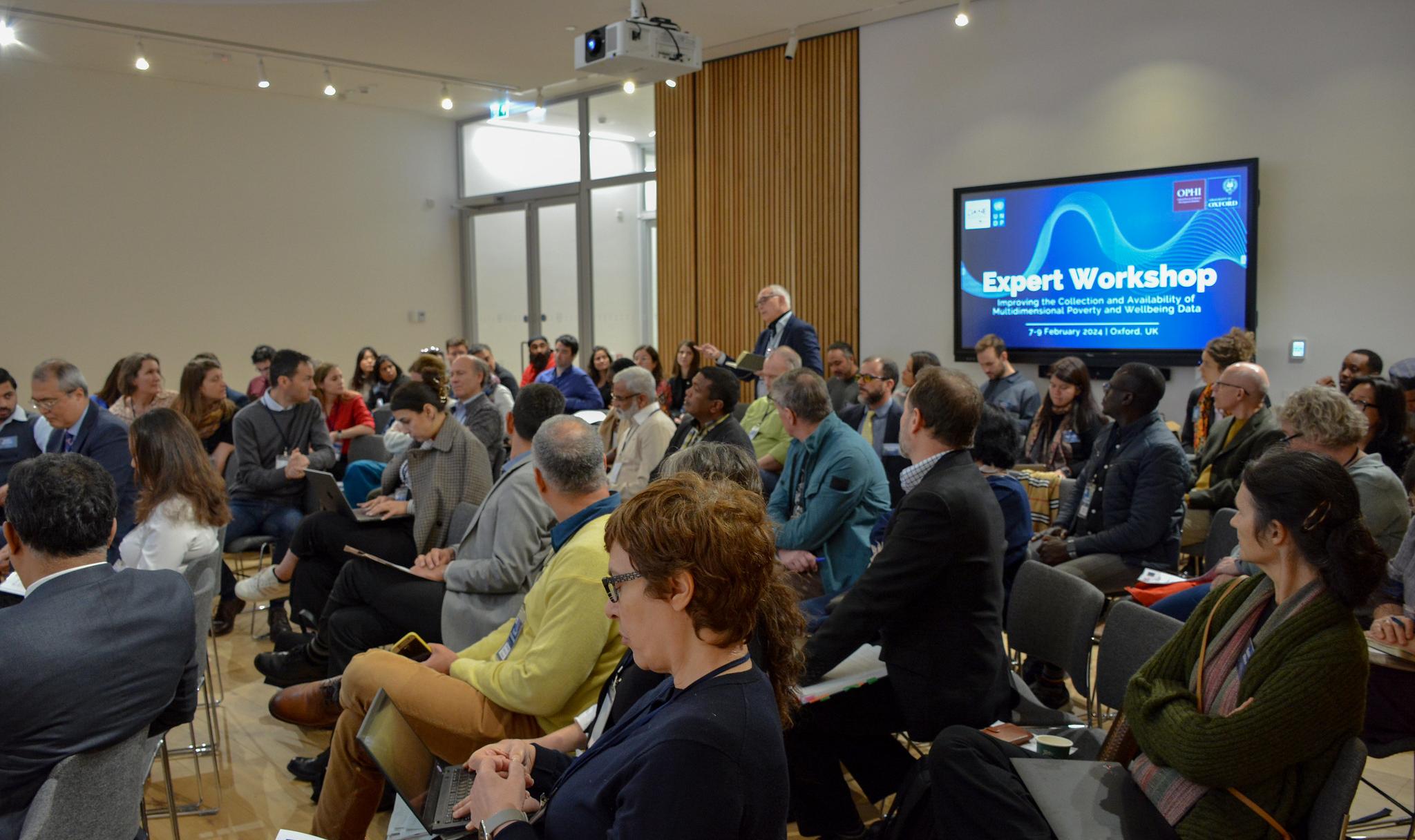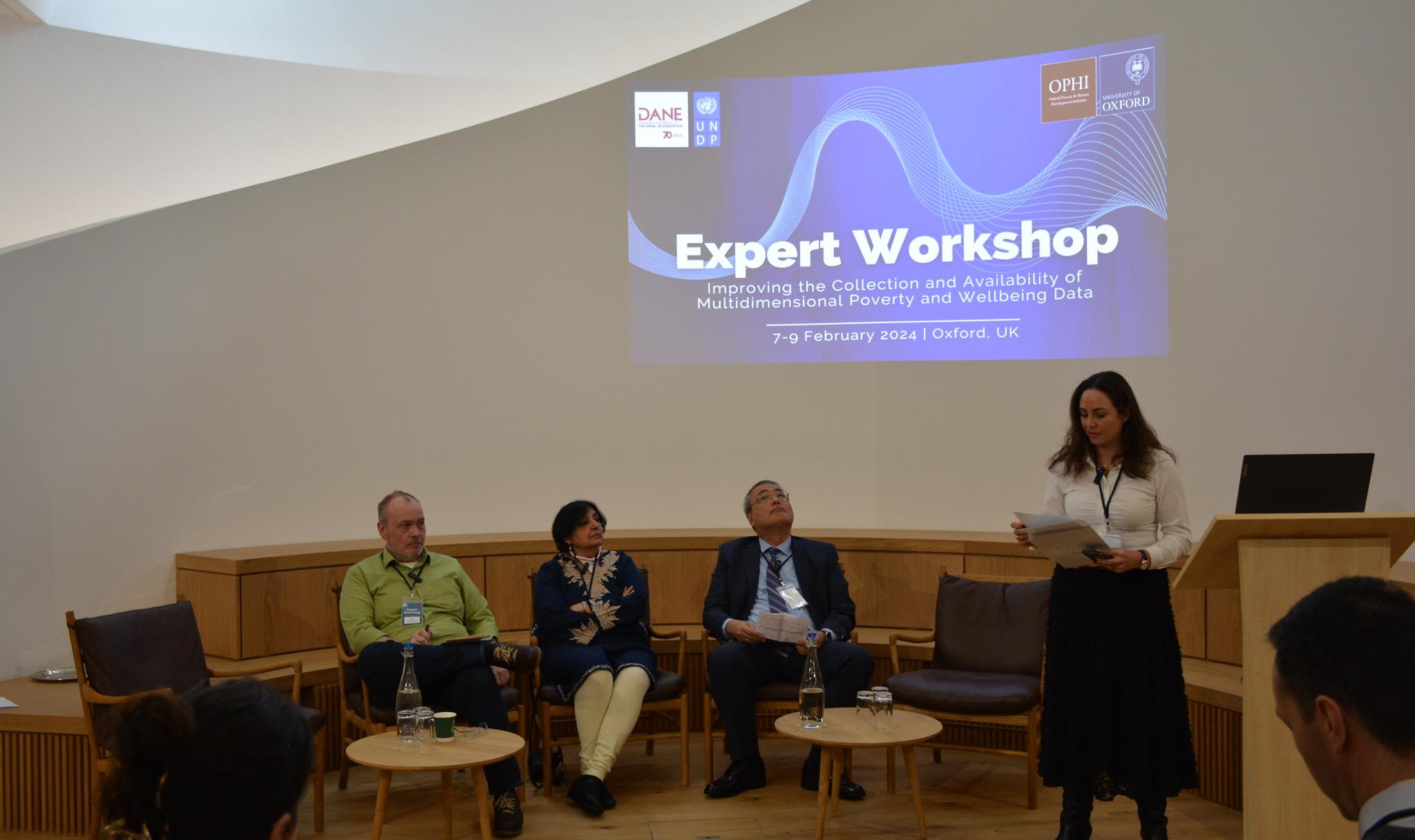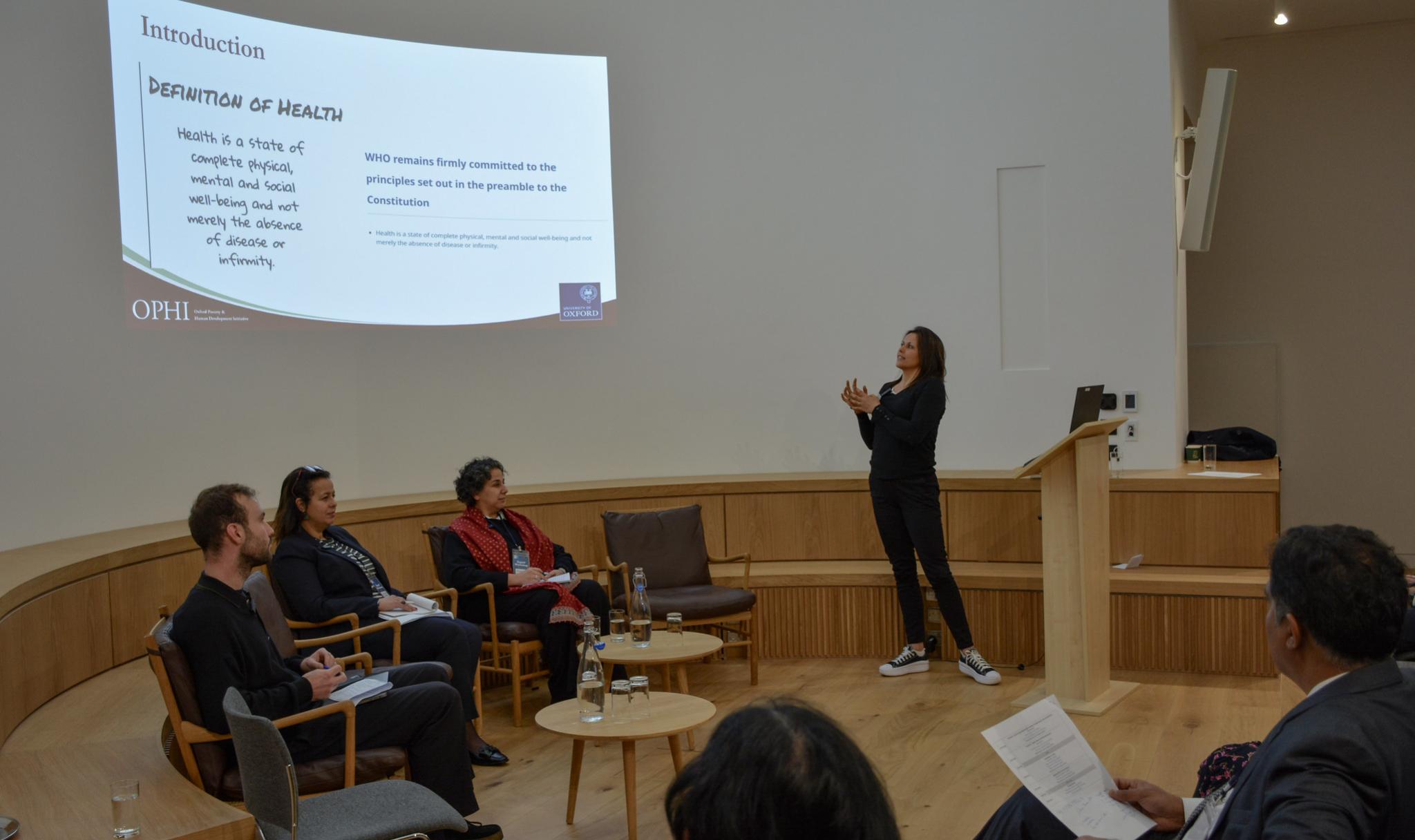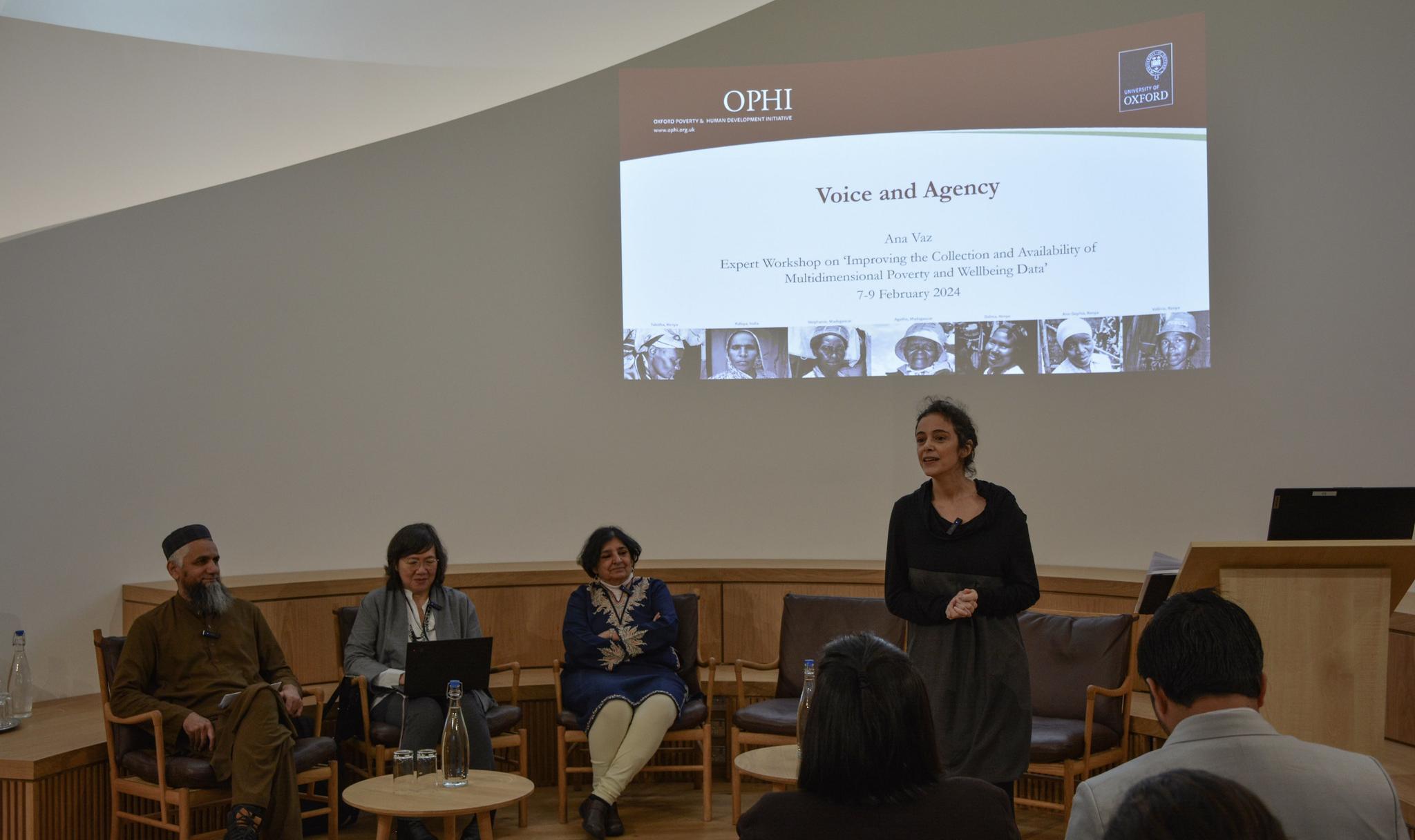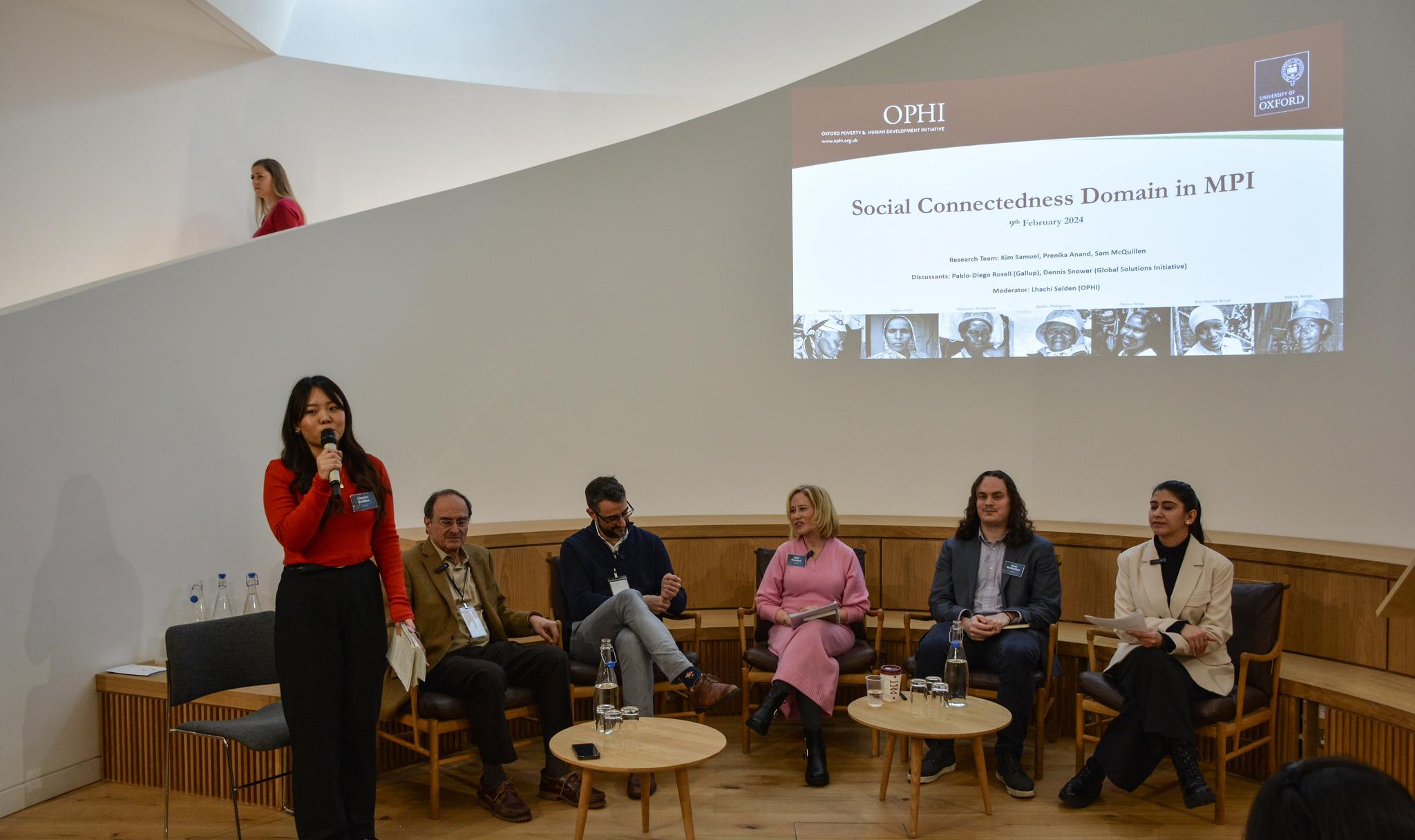Expert Workshop on Improving the Collection and Availability of Multidimensional Poverty and Wellbeing Data
OPHI was honoured to host a three-day Expert Workshop focused on improving the collection and availability of multidimensional poverty and wellbeing data using household surveys on 7-9 February at Jesus College, University of Oxford.
The event was organized in collaboration with the Colombian National Statistical Office, DANE (by its acronym in Spanish) and the Human Development Report Office of the United Nations Development Programme with whom OPHI collaborates on the annual global MPI.
The event brought together 74 experts and leaders in the field of multidimensional poverty measurement and household survey data. Speakers included representatives from national governments including India, Indonesia, Colombia and Brazil, as well as the World Bank, six other UN and regional agencies, research institutions, the private sector, and key survey providers such as DHS, MICS (UNICEF) and Gallup.
Multi-topic household surveys, such as those conducted by the DHS Program and UNICEF MICs, remain essential sources of information for measuring multidimensional poverty. While administrative and geospatial data offer exciting new opportunities for modelling and measurement, these data sets cannot currently replace the coverage and quality of multi-topic household surveys. Core to the agenda was a discussion of potential indicators related to nine areas, or domains, of human development, which could potentially be improved or included in future household survey questionnaires to provide much needed data for global and national MPIs. These domains were the areas of children, education, employment, environment, heath, living standards (housing and services), nutrition, social connectedness, and voice and agency. Each topic was accompanied by a background paper that reviewed and evaluated existing questions and proposed a shortlist of questions that would best capture deprivations on this topic. The indicators across the nine domains were examined both from the perspective of how better to measure acute multidimensional poverty through Multidimensional Poverty Indices, but also how to capture higher levels of human development in an MPI.
Looking to the future and beyond 2030, the Workshop considered how to complement the existing global MPI covering 6.1 billion people with a measure of ‘moderate’ multidimensional poverty, and to do so on a truly global scale. A discussion on wellbeing was also kickstarted with presentations on Bhutan’s Gross National Happiness Index, some Beyond GDP ideas and the domain of social connectedness.
The background papers provided a starting point for rich exchanges during which academics and data experts shared constructive insights on the possibilities and limits of these proposals. Chief among these insights was the intense competition that data providers face for space within questionnaires that are already at the limit of how many questions they can practicably contain. Encapsulating the need to prioritise high value survey questions only, Sunita Kishor, Director of the DHS Program, posed a bold question to participants: “What is the canary in the coalmine that we need to be asking?”.
The workshop also provided an opportunity to highlight innovative data collection methods including those devised by the World Bank and Gallup, and showcase innovative applications using MPI data by national actors in Colombia and India as well as innovations in progress in Brazil and Indonesia. Speakers in several sessions emphasised the importance of measuring new aspects of poverty as such as deprivations related to the digital divide or environmental vulnerabilities. The event provided a wonderful experience to connect and reunite with both long-standing and new peers, as well as many former OPHI colleagues. OPHI looks forward to continuing these or similar conversations at the Fifth UN World Data Forum in Medellin, Colombia, from 11–14 November 2024, which will be hosted by DANE.
The updated background papers as well as a paper extensively surveying domain-specific questions available on hundreds of national and cross-national household surveys will be available on the OPHI website in due course.
The Expert Workshop was kindly supported by the Meditor Trust.
- Full album of photos of the Workshop (7-9 Feb) by Maarit Kivilo
- Instagram Reels



